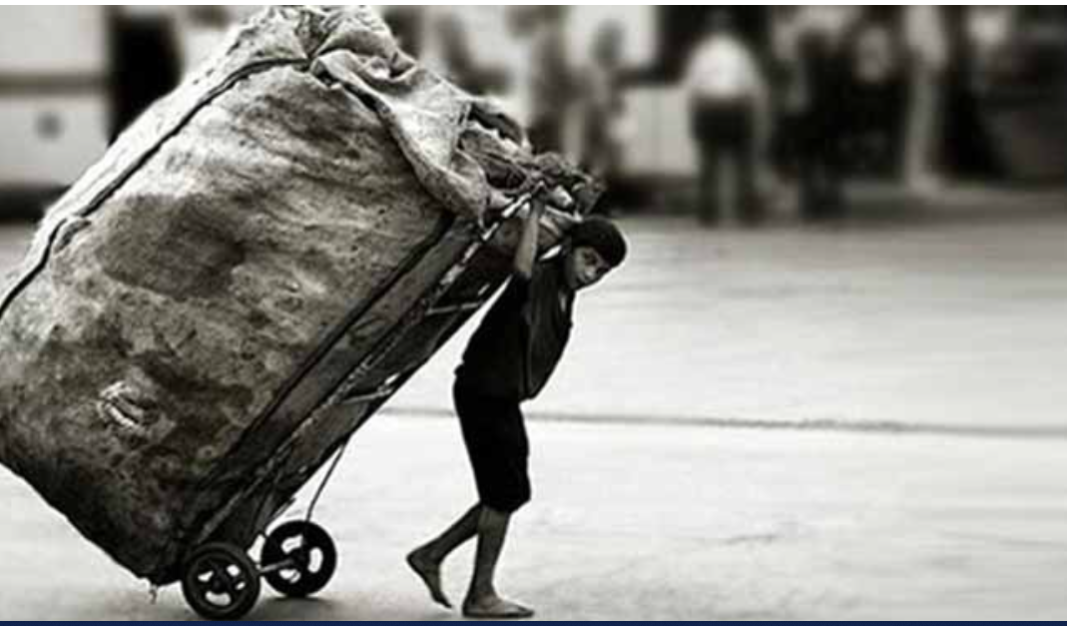Runaway inflation and a collapsing lira are pushing millions of Turks to the brink of financial ruin and slamming factories, farmers and retailers across the country.
More than two-thirds of people in Turkey are struggling to pay for food and cover their rent, according to a survey by Yöneylem Social Research Centre, fuelling a surge in mental illness and debt.
‘Devaluation spiral’
In September 2021, 1 US dollar was worth around 8 Turkish Lira, yet by October 2022 this has lept to nearly 19.
One of the main consequences of this devaluation is inflation – and lots of it. Devaluation has fuelled record-breaking inflation in Turkey — among the highest rate in Europe.
The Turkish Statistical Institute reported that yearly inflation was at 83.45% in September, though many have claimed the real rate is likely even higher. Independent analysts at ENAG estimated that the annual CPI inflation was in fact 176.0%.
Turkish businesses have been hammered by the lira’s fall in value, which has caused production costs to spike, while people’s wages have been depleted because they can now buy less with their money.
“The situation is even worse for skilled workers,” says Dr Cem Oyvat, an economics lecturer at the University of Greenwich, leading to a devastating “brain drain”.
Losing such talent has “the potential to damage Turkey’s economy long into the future, with the economy losing out on the jobs and businesses these individuals could have created,” he says.
‘The economy is too hot’
Yet other factors are at play.
According to Dr Oyvat, the strong GDP growth that Turkey experienced over the last decades was not “even sustainable” in the first place.
Some of this is due to deeper structural issues, such as Turkey’s large current account deficit, meaning it imports more than its exports, yet something else is at play: interest rates.
WATCH: Turkish Economy Won’t Survive The Winter
When economies grow rapidly, interest rate hikes are often used by central banks to cool down the economy. In Turkey, however, the opposite has happened. Interest rates have been kept very low by the Turkish Central Bank, leading the economy to spiral out of control.
“It’s always running too hot,” says Timothy Ash, an emerging markets expert at BlueBay Asset Management. “Growth is too high, domestic demand is too high, imports are too high. Everything is overheating.”
Confidence in the economy has all but collapsed as a result, while foreign and local investors have pulled their money out of Turkey because of the lira’s free-fall.
Low interest rates are largely due to President Recep Tayyip Erdogan’s “unorthodox” understanding of monetary policy, claims Ash.
In the past, Erdogan won elections by flooding the economy with cheap money, he says. “But ultimately there is payback.”
Ash also claims that rock bottom interest rates have been “beneficial” for “big funders” of Erdogan’s AKP party, such as construction and real estate, who can reap more profit from cheaper loans.
Another part of the story is Erdogan’s “Islamic background”, says Ash.
He was one of the first Turkish leaders to go to a religious school and has inherited Islam’s aversion to usury, which views lending money at interest as sinful.
“In the end, it is a combination of all these things,” he adds.
Why aren’t things changing?
Officials in Turkey are aware of what is happening and have repeatedly criticised the status quo.
However, unlike the situation in most other advanced economies, the central bank of Turkey is not independent of the government, meaning it is difficult for them to address the problem.
Making matters worse, Erdogan has dismissed multiple finance ministers and heads of the central bank “essentially for standing up to him” and challenging his unconventional policies, according to Ash.
“Erdogan blames everyone else,” he told Euronews. “He has a team of people around him who are yes men. They don’t tell the truth to power. It’s like the Emperor’s New Clothes”
A centralisation of power in the hands of the Turkish president is at the heart of this issue.
“In the first 10 years of AKP rule, they had pretty orthodox policies and the government was more of a broad church,” says Ash. “Now it is essentially just Erdogan and all the other centres of power within the party have been forced out.”
None of this is lost on Turkey’s population.
Erdogan and the AKP party have plummeted in the polls as the economy has deteriorated, losing control of Turkey’s two major cities Istanbul and Ankara in local elections in 2019.
WATCH: Can The Opposition Rescue Turkish Economy?
“People are pretty upset,” said Ash. “They are seeing their own living standards falling.”
Judgement day for Erdogan comes in 2023 when Turkey is due to hold a national election, though there is a chance he can turn things around, particularly by using public spending.
“Erdogan can throw a lot of money at insulating certain sections of the population, like pensioners, those on social security payments [and] public sector workers,” explained Ash. “He’ll certainly use the budget to help those he thinks are key to winning the election.”
The legal minimum wage was recently doubled in Turkey in light of sky-rocketing inflation.
Still, the long-term prospects for his government will be dim if the polls remain low and its economic policies do not change.
“It’s hard to predict an election,” said Ash. “But this will be the most closely fought vote in 20 years. “The stakes are high, Erdogan has a lot to lose.”
Follow our English language YouTube videos @ REAL TURKEY: https://www.youtube.com/channel/UCKpFJB4GFiNkhmpVZQ_d9Rg
And content at Twitter: @AtillaEng
Facebook: Real Turkey Channel: https://www.facebook.com/realturkeychannel/
